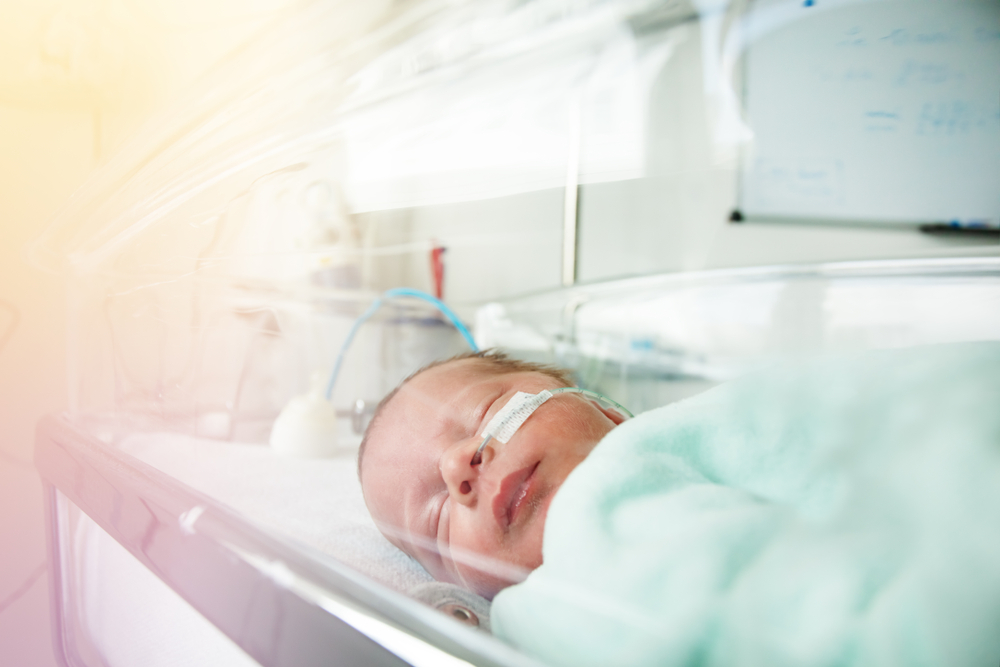Children change every aspect of a parent’s life, and for many, it’s a welcome experience. Parents plan and prepare for the arrival of their little one, but something no one can truly prepare for is their newborn being injured during birth.
If a birth injury occurs and is caused by the doctor or medical team involved, seeking financial compensation to cover the cost of care in the short- and long-term is important. The costs associated with a child with a disability or chronic condition add up quickly; medication, treatments like physiotherapy, aids, and partial or complete nursing care are expensive, and many families can’t afford what’s needed to provide the best quality of life for their child.
Suing for a birth injury caused by a doctor could take some or all of the financial burden off the family’s shoulders and ensure the child is well cared for throughout their life. While a medical malpractice lawsuit would be a logical next step if the doctor is at fault, Florida legislation enacted more than three decades ago prevents parents from filing lawsuits for birth injuries. Instead, families must apply for compensation through Florida’s Birth-Related Neurological Injury Compensation Plan (NICA).
But a Miami Herald and ProPublica investigation of NICA revealed disparity and troubling issues. The investigation sheds light on the extensive gaps and insufficient coverage that protects doctors and hurts the injured. It’s clear the limitations of NICA have had a negative impact on many families since its inception, and advocates are pushing for reform.
What is Florida’s Birth Injury Plan? How Does it Work?
If a child suffers a brain or spinal cord injury during birth or right after, the parents can apply for financial support from Florida’s Birth-Related Neurological Injury Compensation Plan. The program was launched in 1988 and can be used in cases where a doctor is to blame for the brain injury, and it ultimately prevents medical malpractice lawsuits of this kind.
NICA provides eligible families $100,000 up front, and parents may submit claims for additional coverage of medical necessities like wheelchairs, physiotherapy, treatments, and other health care aids and services.
From the outside, NICA sounds and looks like it provides families with the financial support they need to care for those who suffered brain damage at birth. But being reimbursed for much-needed aids, medical treatment, equipment, surgeries, and at-home care from specialists and nurses has been difficult for many applicants. There’s also the fact that the up-front payment amount hasn’t changed since the program was launched in the 80s, ultimately falling even shorter of what’s needed to care for someone with a severe disability.
As long as the baby’s injury fits within NICA’s parameters and that doctors pay an annual premium and hospitals pay a set birth fee, medical malpractice lawsuits aren’t an option. Parents can’t seek what a lawyer would deem adequate financial compensation by suing the doctor at fault, something that could ensure the disabled child is cared for throughout their life.
All too often, claims submitted to NICA are rejected, even when the item or service is vital to caring for and treating someone with a devastating brain injury and accompanying lifelong disabilities. For many parents, what followed rejections of financial support led to months and years of appeals and legal fees to reverse the decision and fight for what’s needed. Some were successful, but the legal journey for birth injuries in Florida has been stressful, time-consuming, and expensive for families.
According to the Herald and ProPublica investigation, many requests by parents have been denied, leaving families with few options. In addition, inconsistencies were revealed regarding what gets approved for one family over another, with seemingly arbitrary or outright unfair reasoning for not covering a medical necessity.
Why was NICA Created?
The emergence of the Florida Birth-Related Neurological Injury Compensation Plan (NICA) was the first-ever compensation plan for babies who suffered neurological injuries due to a doctor’s mistake.
The program was set up to help curb the mass exodus of doctors leaving the state because of the state’s high cost of malpractice insurance premiums. It exists to provide support and care for neurologically injured children, but the latest investigations have revealed that these children and their parents are suffering.
While NICA may have kept some doctors in Florida, many families of children with birth injuries, such as brain damage from improper monitoring of the baby’s oxygen during delivery, are not adequately supported. The compensation and access to necessary treatments, care, and aids are limited, require parents to apply for coverage for every health-related need, and often don’t sufficiently meet the immediate and lifelong needs of those with a brain injury.
But how can parents in Florida have their needs met when NICA dictates and limits the amount of compensation given?
Why Advocates want to Change or Eliminate NICA
Lawmakers, parents, and advocates are pushing and holding onto hope for reform. They’re fighting for changes to Florida’s Birth-Related Neurological Injury Compensation Plan that expand what’s covered, improve the claim process, increase the amount of money provided, and meet the long-term needs of those suffering from birth injuries. But change won’t come easy.
With limits to what extent a family is financially supported through the program, many feel preventing medical malpractice lawsuits for birth injuries is unfair. It’s been argued that NICA doesn’t provide enough support and coverage for health care items and services. More specifically, lawsuits for medical malpractice could – and have, in other states – provide more significant financial compensation. These settlements consider the baby’s current needs and what they’ll need throughout their life.
A key component of advocacy for change is having families affected by a brain injury represented on NICA’s Board of Directors. Doing so could help ensure the needs of these families are voiced and considered by the people who make decisions. This, among other changes, could be hugely beneficial for those injured at birth due to a doctor’s mistake or negligence.
Financial Impacts of Birth Injuries
Birth injuries can have lifelong effects not just on the child but the parents and their family. Unfortunately, the financial impacts of birth injuries are far greater than what can be afforded.
Home renovations to accommodate wheelchairs and special furniture, speech therapy, physiotherapy, special vehicles, and aids to provide comfort and improve the lives of someone with a brain injury are too expensive for many. Often, parents become their child’s full-time caregiver, creating an even greater disparity between a family’s income and the cost of health care.
Other costs, such as travel and accommodations to see doctors and specialists, treatments, and surgeries, add more expenses. The investigation into NICA showed that while they cover many needs, they’re often slow to reimburse or provide the items, and rounds of appeals to denied requests are common. This has left children and adults with severe disabilities waiting several months to get what they need.
Although what a child or adult with brain damage requires during their life varies and changes as time goes by, it’s clear a seriously disabled person will need extensive care and support.
Cerebral palsy (CP) is one of several types of brain damage resulting from medical malpractice, and the required health care is quite costly. In fact, the Centers for Disease Control and Prevention (CDC) estimates the cost of caring for a child with cerebral palsy is ten times higher than that of a healthy baby.
Treatment for Florida Birth Injuries is Expensive
The reality for parents to be adequately financially supported when a birth injury occurs is grim. Families need more money and greater access to health care for their child to live the most comfortable and best life possible. To achieve this, babies injured at birth due to medical malpractice aim to see changes to NICA.
With the Herald and ProPublica’s exposé on Florida’s Birth-Related Neurological Injury Compensation Plan, parents and lawmakers are watching closely and advocating for improved support.














